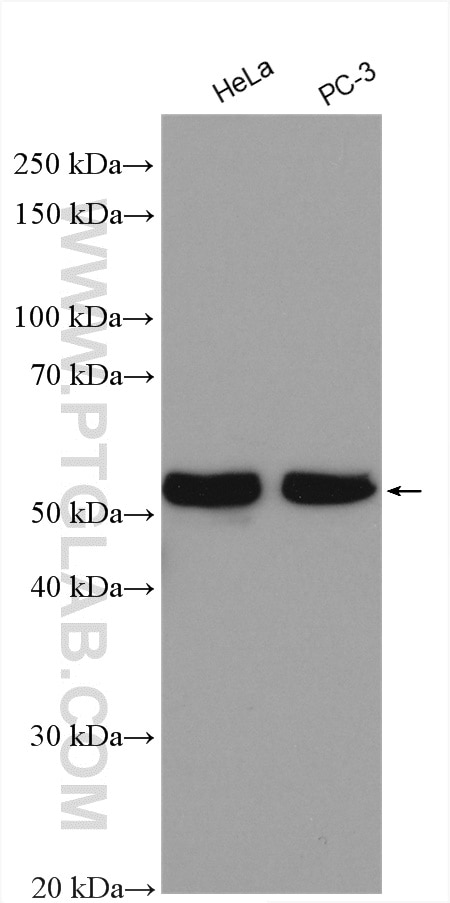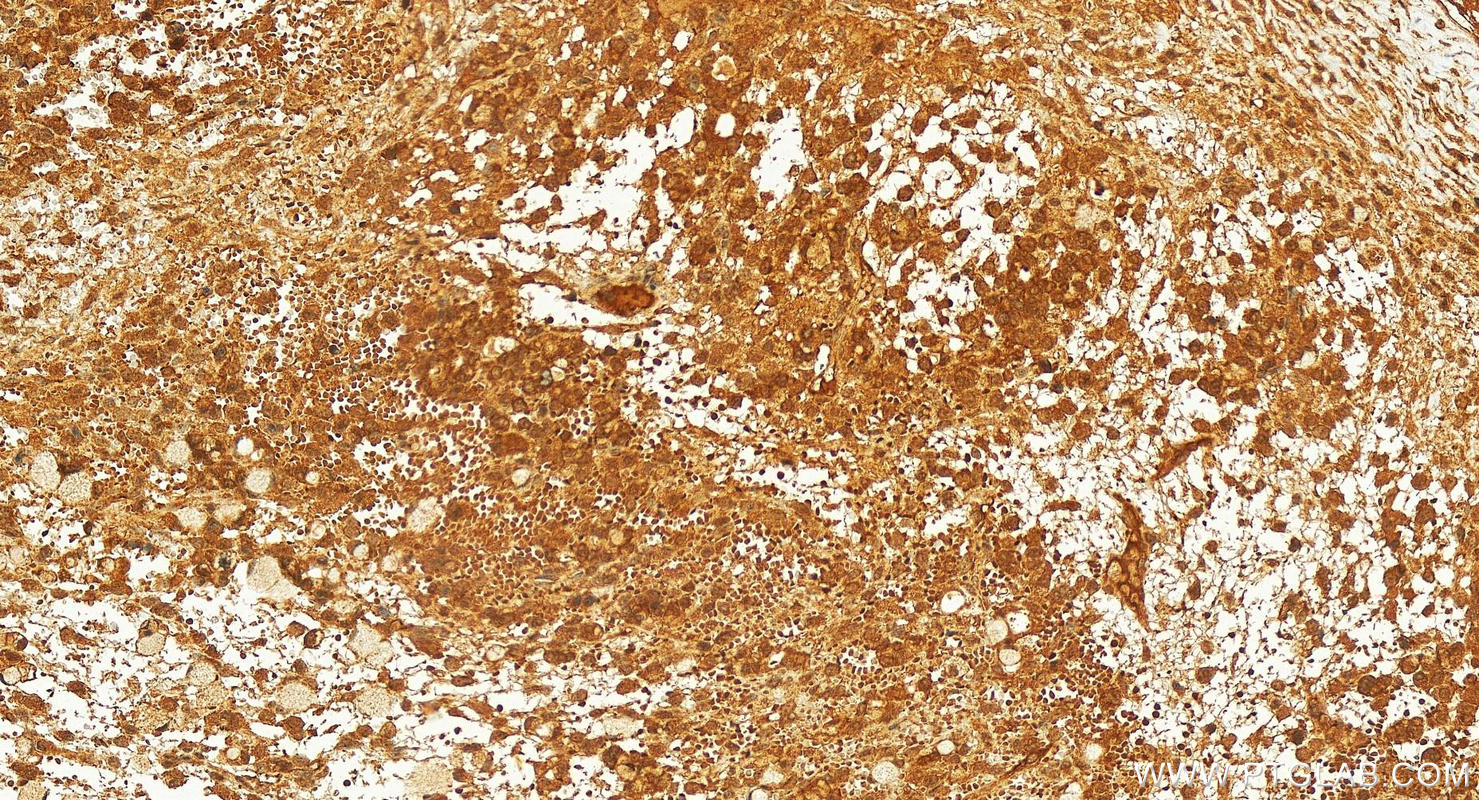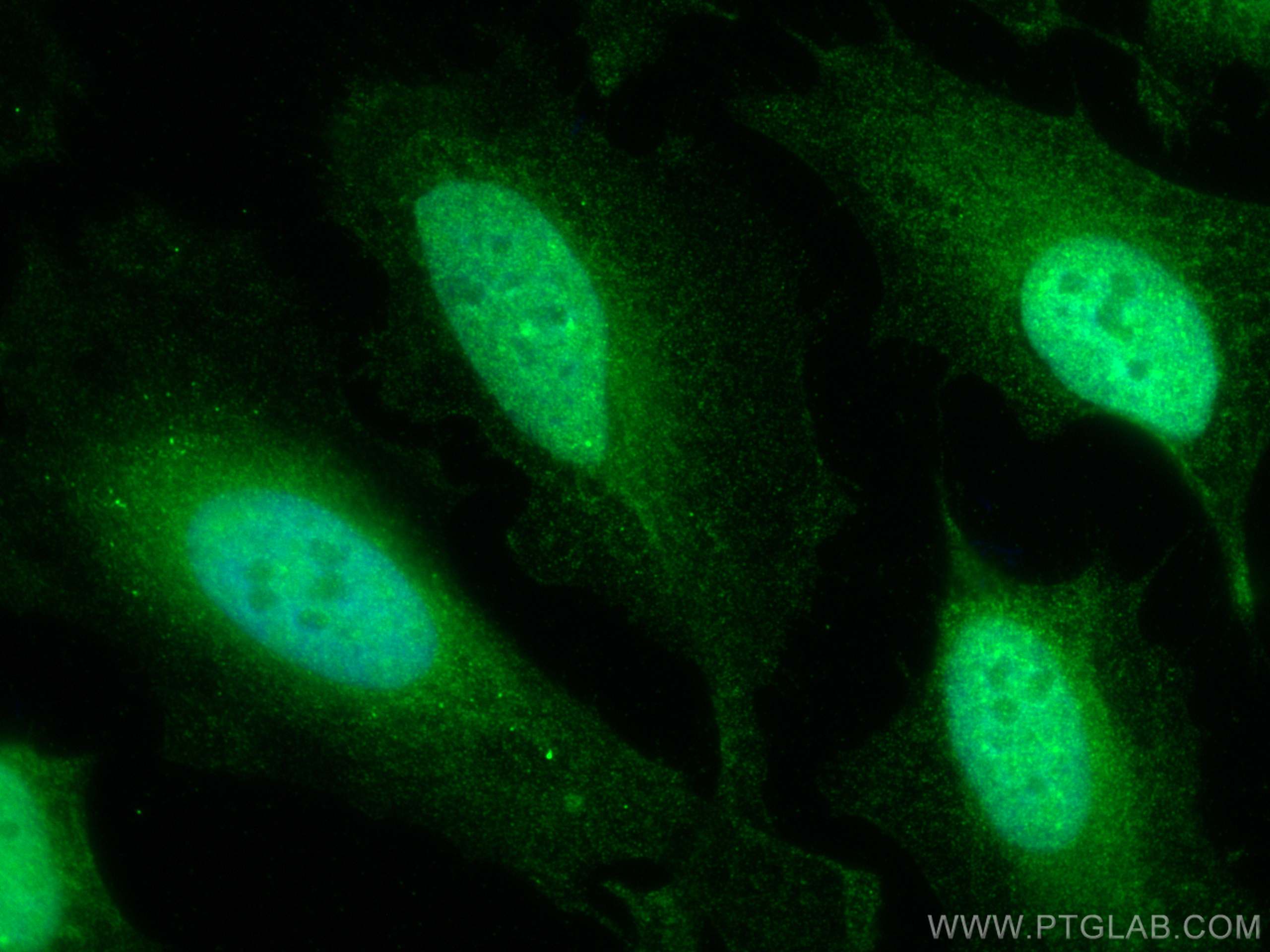Validation Data Gallery
Tested Applications
| Positive WB detected in | HeLa cells, PC-3 cells |
| Positive IHC detected in | human ovary cancer tissue Note: suggested antigen retrieval with TE buffer pH 9.0; (*) Alternatively, antigen retrieval may be performed with citrate buffer pH 6.0 |
| Positive IF/ICC detected in | HeLa cells |
Recommended dilution
| Application | Dilution |
|---|---|
| Western Blot (WB) | WB : 1:500-1:2000 |
| Immunohistochemistry (IHC) | IHC : 1:50-1:500 |
| Immunofluorescence (IF)/ICC | IF/ICC : 1:200-1:800 |
| It is recommended that this reagent should be titrated in each testing system to obtain optimal results. | |
| Sample-dependent, Check data in validation data gallery. | |
Published Applications
| KD/KO | See 1 publications below |
| WB | See 4 publications below |
| IF | See 1 publications below |
Product Information
22792-1-AP targets SPAST in WB, IHC, IF/ICC, ELISA applications and shows reactivity with human, mouse, rat samples.
| Tested Reactivity | human, mouse, rat |
| Cited Reactivity | human, mouse, rat |
| Host / Isotype | Rabbit / IgG |
| Class | Polyclonal |
| Type | Antibody |
| Immunogen | SPAST fusion protein Ag18797 相同性解析による交差性が予測される生物種 |
| Full Name | spastin |
| Calculated molecular weight | 616 aa, 67 kDa |
| Observed molecular weight | 52 kDa |
| GenBank accession number | BC150260 |
| Gene Symbol | SPAST |
| Gene ID (NCBI) | 6683 |
| RRID | AB_2879170 |
| Conjugate | Unconjugated |
| Form | Liquid |
| Purification Method | Antigen affinity purification |
| UNIPROT ID | Q9UBP0 |
| Storage Buffer | PBS with 0.02% sodium azide and 50% glycerol , pH 7.3 |
| Storage Conditions | Store at -20°C. Stable for one year after shipment. Aliquoting is unnecessary for -20oC storage. |
Background Information
SPAST encodes a microtubule-severing protein called spastin. By severing microtubules into small segments, SPAST participates in the growth and regeneration of neurites. Mutations in the SPAST gene (previously known as SPG4) are the most common causes of hereditary spastic paraplegia (HSP-SPG4). Mammalian cells express at least two spastin isoforms, a less-abundant full-length form (M1-spastin, 68 kDa) and a more highly expressed isoform (M87-spastin, 60 kDa) that lacks the N-terminal 86 amino acids of the full-length protein. Also, there are two additional 64 kDa and 55 kDa isoforms due to alternative splicing of SPG4 exon 4. This antibody recognizes all these isoforms of spastin.
Protocols
| Product Specific Protocols | |
|---|---|
| WB protocol for SPAST antibody 22792-1-AP | Download protocol |
| IHC protocol for SPAST antibody 22792-1-AP | Download protocol |
| IF protocol for SPAST antibody 22792-1-AP | Download protocol |
| Standard Protocols | |
|---|---|
| Click here to view our Standard Protocols |
Publications
| Species | Application | Title |
|---|---|---|
Cell Rep Resolving ESCRT-III Spirals at the Intercellular Bridge of Dividing Cells Using 3D STORM.
| ||
FASEB J Regulation of the blood-testis barrier by a local axis in the testis: role of laminin α2 in the basement membrane. | ||
Mol Biol Cell Spastin regulates anaphase chromosome separation distance and microtubule-containing nuclear tunnels | ||
Acta Neuropathol Commun The enhanced association between mutant CHMP2B and spastin is a novel pathological link between frontotemporal dementia and hereditary spastic paraplegias |


